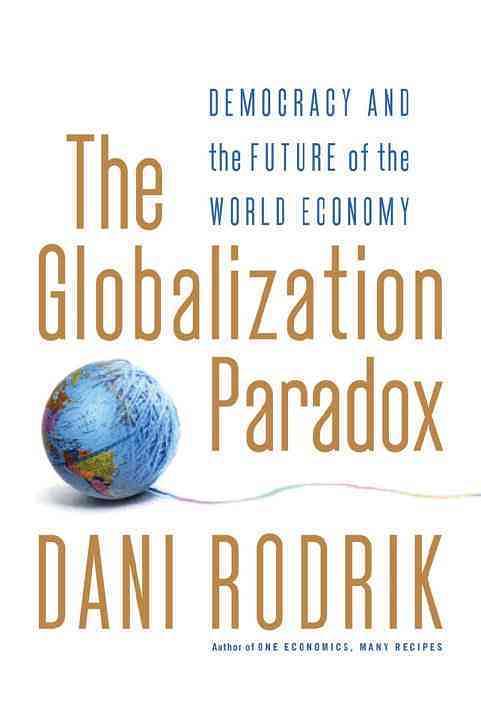內容簡介
內容簡介 Leading scholar Dani Rodrik shows the way to a balanced prosperity as we confront today's global challenges in trade, finance, and labor markets."In this powerfully argued book, Dani Rodrik makes the case for country-specific paths to economic development and saner, more sustainable forms of growth. A provocative look at the excesses of hyperglobalization, The Globalization Paradox should be required reading for those who seek to prevent the financial crises and unfair trade practices that feed the backlash against open markets."-Nouriel Roubini, coauthor of Crisis Economics: A Crash Course in the Future of Finance"Dani Rodrik may be globalization's most prominent-and most thoughtful-gadfly. In The Globalization Paradox he wonders aloud whether extreme globalization undermines democracy-and vice versa. Read it and you'll wonder, too."-Alan S. Blinder, former vice-chairman of the Federal Reserve's Board of Governors"This book takes on the biggest issue of our time-globalization- and eloquently enlarges the debate about the extent and limits of global cooperation."-Gordon Brown, former British prime ministerA call to embrace a leaner globalization that puts national democracies front and center.From the mercantile monopolies of the seventeenth century to the WTO, IMF, and World Bank of today, globalization has hinged on rules that extend beyond nations' borders-rules that tend to raise the ire of their local opponents. In this trenchant critique, economist Dani Rodrik combines historical narrative with fresh insights to challenge the conventional wisdom that portrays the advance of globalization as inevitable-and as inevitably benign-and shows that globalization carries with it an unavoidable tension.Nations cannot simultaneously pursue democracy, self-determination, and economic globalization. If we want to preserve democracy, we have to choose between national sovereignty and globalization. If we want to preserve the nation state, we have to choose between keeping democracy and deepening globalization. And if we want to push for fuller globalization, we must sacrifice either the democratic political process or the nation state. We can have any two in combination, but we cannot have all three.Having expertly shown that a healthy global economic system will not be attained without sacrifice, Rodrik gets straight to the core of the matter: which two should we keep? The answer lies in reinvigorating the Bretton Woods compromise of 1944, which was based on the understanding that international economic rules would have to be subservient to domestic policy objectives and not the other way around. The paradox is that a less ambitious globalization is a better globalization.Combining history with humor and good-natured critique, The Globalization Paradox makes a compelling case for a tempered globalization model, one that preserves space for national democracy and is supported by a light frame of international rules. As we confront today's global challenges in trade, finance, and labor markets, Rodrik's reasoned solution shows the way to a balanced, sustainable prosperity. Surveying three centuries of economic history, a Harvard professor argues for a leaner global system that puts national democracies front and center. From the mercantile monopolies of seventeenth-century empires to the modern-day authority of the WTO, IMF, and World Bank, the nations of the world have struggled to effectively harness globalization's promise. The economic narratives that underpinned these eras�the gold standard, the Bretton Woods regime, the "Washington Consensus"�brought great success and great failure. In this eloquent challenge to the reigning wisdom on globalization, Dani Rodrik offers a new narrative, one that embraces an ineluctable tension: we cannot simultaneously pursue democracy, national self-determination, and economic globalization. When the social arrangements of democracies inevitably clash with the international demands of globalization, national priorities should take precedence. Combining history with insight, humor with good-natured critique, Rodrik's case for a customizable globalization supported by a light frame of international rules shows the way to a balanced prosperity as we confront today's global challenges in trade, finance, and labor markets.
作者介紹
作者介紹 Dani Rodrik is the Rafiq Hariri Professor of International Political Economy at the John E Kennedy School of Government at Harvard University and is the recipient, among other honors, of the inaugural Albert O. Hirschman Prize of the Social Science Research Council. An occasional contributor to The Economist, the New York Times, the Financial Times, New Republic, and other journals, he lives in Cambridge, Massachusetts.
